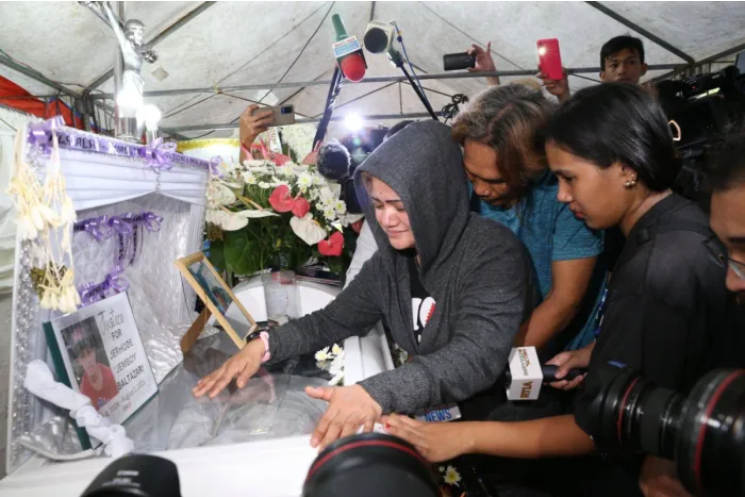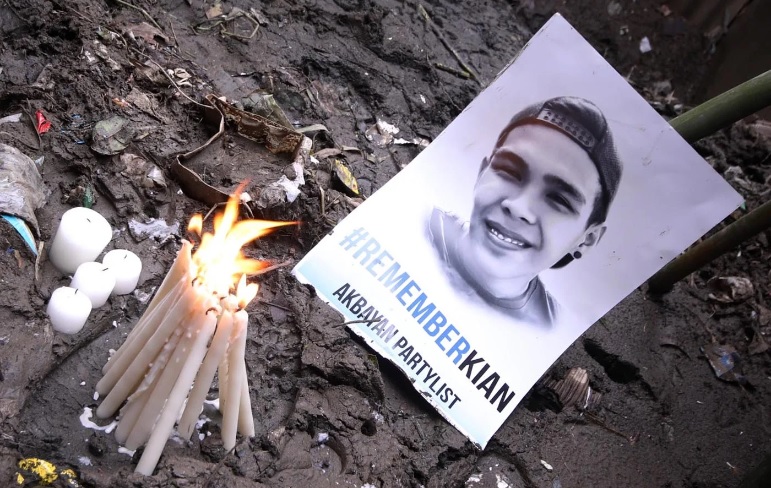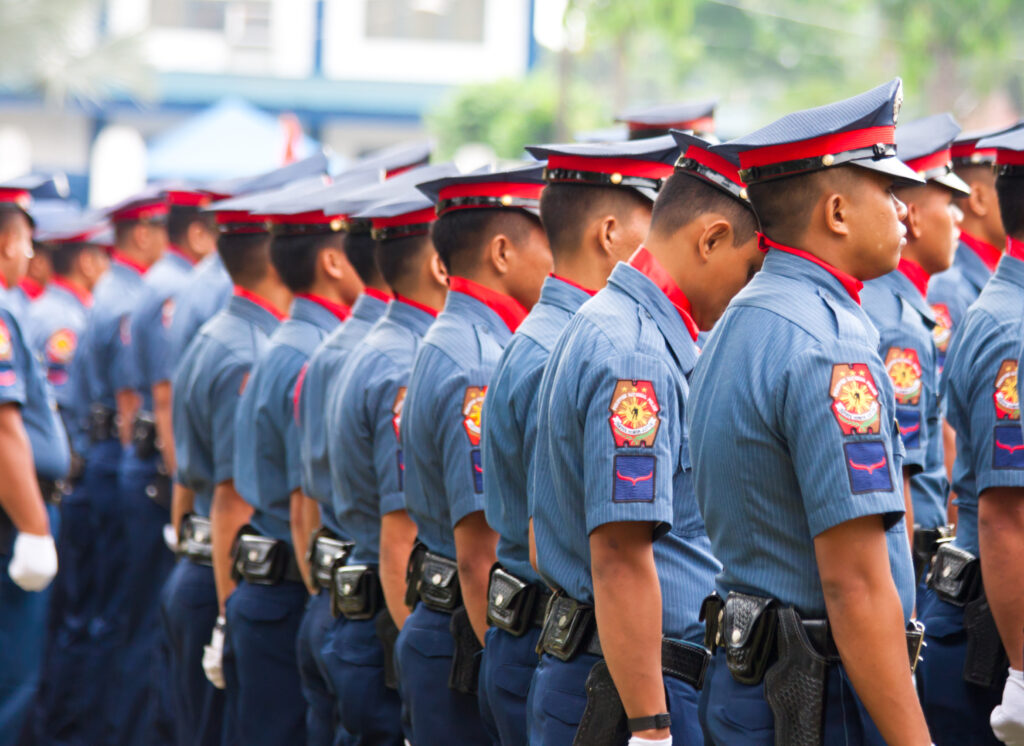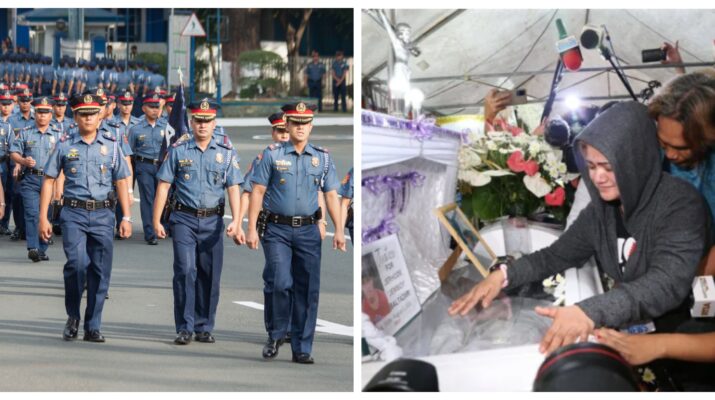Filipinos are fully aware of how crooked the Philippine National Police (PNP) is, but in case there are still some who those who are deluded, they only need to tune in to recent news to extinguish any shred of hope for our police force.
On August 2, 17-year old Jemboy Baltazar was shot dead by Navotas City police after being mistaken for a murder suspect. The teenager was working on a boat, alongside his friends, when police officers arrived in the vicinity looking for a suspect they were pursuing.

Upon seeing Baltazar and another teenager, the officers immediately opened fire on them – killing the 17-year old. Both boys were unarmed and were preoccupied working on their boat when they were shot at; there were no warning shots, in fact, the police officers didn’t even bother to positively identify the victim before they opened fire.
Baltazar fell into the water upon being shot and police did not make an effort to retrieve the boy’s body or to check on him at all. Instead, it was a relative of the teenager who jumped into the water to retrieve Baltazar’s lifeless body – only for the Navotas police officers to confirm that they neutralized the wrong person.
It is a basic tenet for law enforcement to only use force when necessary, that is, when the life of the police officer is at risk. The law enforcers who shot Jemboy dead instead thought to “shoot first, ask questions later”. A simple positive ID on the two teenagers would’ve been enough to rule them out as the suspects police were looking for, but being trigger-happy has overruled this logical first step.
Not content with taking an innocent teenager’s life, the PNP quickly moved to hinder the investigation into Baltazar’s death by harassing the forensic pathologist who autopsied the boy. Raquel Fortun reported that she was visited in her office by police officers who told her they were interested in her autopsy report in Baltazar’s death.
This despite the requesting family was the teenager’s family, which meant the report would only go to them and not the police. It was a clear attempt to intimidate the medical professional, hoping they could compel her to turn over her report to them.

The unjust killing of Jemboy Baltazar brought back memories of the killing of another 17-year old, Kian delos Santos, by police in 2017. At the height of former President Rodrigo Duterte’s war on drugs, Caloocan City cops conducted an anti-narcotics operation that resulted in 18 deaths, including the teenager.
A police spot report alleged the teenager “drew his firearm and directly shot” at the police after being apprehended. However, recovered CCTV footage showed that the police officers grabbed Delos Santos outside his home and dragged him to an unknown location, where he was summarily executed after being accused of being a drug peddler.
An eyewitness who witnessed the incident also told media that Delos Santos “begged for his life” before being shot to death by the police. It was a killing that made the world pay attention to Duterte’s murderous “war on drugs”, but also to the barbarism and cruelty of the Philippine Police.
As appalling as Delos Santos’ murder might have been, it wasn’t the only example of police brutality during the bloody Duterte years. In 2016, South Korean businessman Jee Ick-Joo was kidnapped and held for ransom by Philippine Police – later murdered after his wife could not provide the full ransom amount being extorted.
What made Jee’s killing even more shocking was that it happened inside Camp Crame itself – the headquarters of the PNP. The erring police officers were members of the PNP’s anti-drugs unit too, the very same group who oversaw most of the war on drugs.

Each time controversy plagued the PNP, its upper echelons were quick to mitigate the PR disaster, and the national government would always make a pledge to reform the police force entirely. Yet Duterte’s administration has passed and we are more than one year into the new leadership of President Bongbong Marcos, yet the crookedness and lust for blood in the PNP endures.
Even before Jemboy Baltazar’s murder the PNP were already embroiled in other scandals. Cavite police illegally raided and ransacked the residence of a former teacher over a supposed “anti-narcotics operation”. CCTV footage showed plainclothes cops breaking into the house and even threatening to kill the retired teacher who began screaming for help.
In the aftermath of the alleged “raid”, the police officers took with them cash and other valuables – including a laptop – from the house they raided. The police spot report stated that the operation was a “buy-bust operation”, despite the CCTV footage showing no interaction occurring before the cops forcibly entered the home. The same report also stated the operation happened at night, when the video footage clearly being shot during the daytime.
Philippine Police use the guise of legitimate anti-narcotics operations to justify abuse of their power and to satisfy their bloodlust. This is a fact that Filipinos have known for generations, yet again and again are reminded of this reality each time the PNP is exposed to the public.
Successive presidents have sought to address this problem, each time stating they will be the one to cure the PNP of the cancers of corruption and cruelty that prevails within its ranks. However, at this point it is becoming clear that the institution is not ailing with a cancer – it is the cancer.
How many bad apples need to fall before we begin to understand that the problem is the tree itself? With Jemboy Baltazar’s murder, undoubtedly a PR spin will be due to fix the PNP’s image – hopefully Filipinos have wised up to reality by now.

